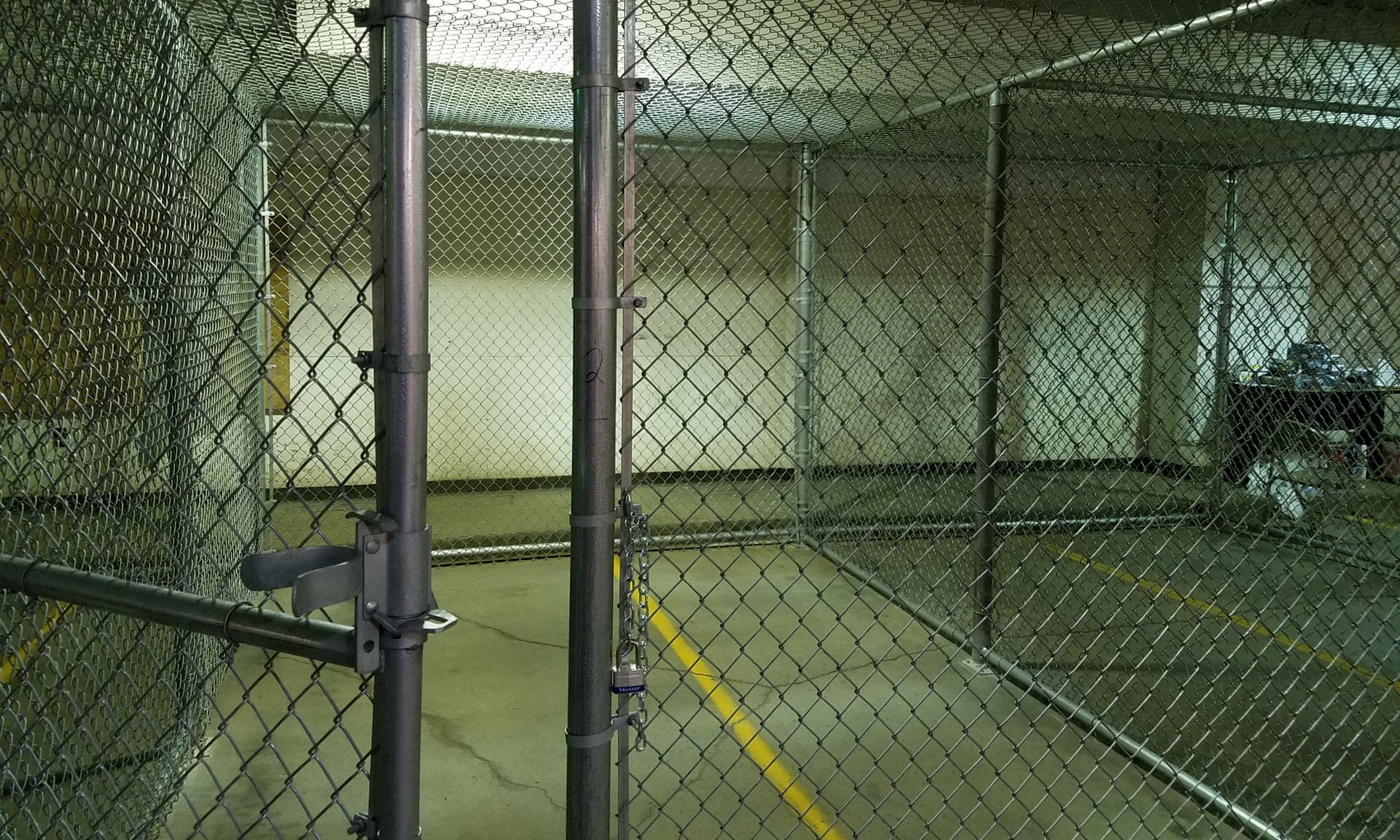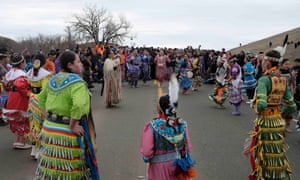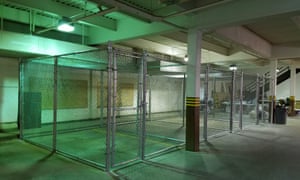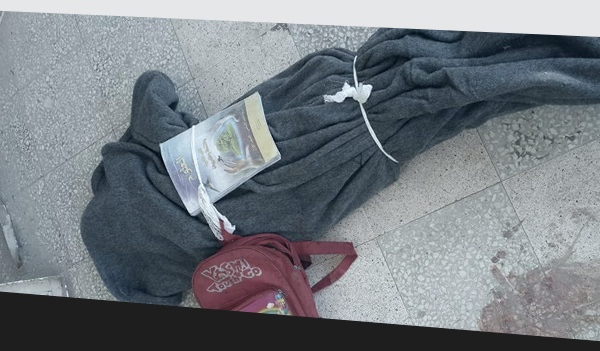The report includes only the death toll of civilians that were killed by the main six influential parties in Syria:
– Government forces (Army, Security, local militias, Shiite foreign militias)
– Russian forces
– Self-management forces (consisting primarily of the Democratic Union Party forces, a branch for the Kurdistan Workers’ Party)
– Extremist Islamic groups
– Armed opposition factions
– International coalition forces
– Unidentified groups
Gay Pardon ‘Turing Bill’ Filibustered in Parliament
By Sarah Lafen
Impunity Watch Desk Reporter, Europe
LONDON, England — A bill put forth in Parliament which would have currently and posthumously excused gay men convicted of same-sex offenses when homosexuality was illegal in the United Kingdom was prevented from progressing to a vote after a member filibustered the proposed bill. The bill, named the ‘Turing Bill’ after Alan Turing, was proposed by John Nicolson MP. The Turing Bill would have granted a blanket pardon for approximately 65,000 men – 15,000 of which are alive today.

Sam Gyimah, Justice Undersecretary of the Conservative party in the UK, spoke for 25 minutes, which took up the allotted time allowed for voting on the bill. Gyimah argued that the bill did not protect against men who engaged in sexual relations with a minor, or those who engaged in non-consensual sex.
The government countered Nicolson’s bill by proposing an amendment to the Policing and Crimes Bill, which would posthumously pardon those men who were wrongfully convicted, and allow those who are still alive go through a “disregard process” in order to clear their names. The government stated that it does not support the Turing Bill because they believe it might lead to people being cleared of offenses that are still considered crimes.
LGBTQ-rights organization Stonewall UK voiced their disappointment in the filibuster, however vowed to work with the government and Nicolson to build on the government’s proposed bill and “reach the best possible outcome for those wrongly accused and convicted men.” Iain Stewart, a conservative MP, stated that while he would support the government’s amendment, he believed it would not do enough for those affected.
One of the signatories to the bill was Turing’s great niece, Rachel Barnes. Barnes told reporters that her family has “always considered that it is totally unjust that only Alan was given a pardon. There were 50,000 other homosexuals who were convicted and not given a pardon. We would really like this to be put right now.”
Debate on the Turing Bill will start again in December, however many are skeptical as to how far the bill can progress without support from the government.
For more information, please see:
NBC — Comprehensive Gay Pardon Law Filibustered in UK — 22 October 2016
BBC — ‘Turing Bill’ for Gay Pardons Fails in Parliament — 21 October 2016
The Guardian — Conservative Minister Obstructs Progression of Gay Pardon Law — 21 October 2016
Newsy — Filibuster Kills the UK’s Gay Pardon Bill — 21 October 2016
Clashes between Protestors and Venezuelan Security Forces
By Cintia Garcia
Impunity Watch Reporter, South America
CARACAS, Venezuela—Venezuelan opposition protestors clashed with security forces on Wednesday. One police officer was shot and killed. At least 20 people have been injured, including 3 that were shot, and an estimated 208 arrests occurred nationwide.
Hundreds of thousands of opposition protestors took to the streets throughout Venezuela after a referendum was blocked. A referendum is being pushed by the opposition to remove president Maduro from office by hosting elections. The opposition was able to gather 1.8 million signatures demanding a referendum; 400,000 signatures were validated by the electoral authorities that would have authorized the election. If an election is held, the opposition would need to get over 7,587,579 votes to oust president Maduro. The referendum was halted after officials ruled that there was identity fraud. In the National Assembly, which is dominated by the opposition, voted to launch a political trial against President Nicolas Maduro. But the Supreme Court has overruled every decision made by the National Assembly since it became the majority. In addition, opposition leaders have called for a 12-hour national strike and a march on November 3 to the presidential palace if the referendum does not go forward. A protestor stated, “If they don’t want to let us choose in an electoral voting process, they are going to have to listen to us as we march in the streets peacefully, overwhelmingly, and tirelessly until they meet the demands of the Venezuelan people.”
The Vatican has announced it will serve as a neutral party to mediate talks between the opposition and the government—but many do not believe this will work. President Maduro on a televised address, stated that the opposition leaders are seeking a coup with the support of the US. He stated, “They are desperate, they have received the order form the north to destroy the Venezuelan revolution.” He also called for a dialogue and peace.
Venezuela has suffered an economic crisis due to falling crude oil prices. This has lead to a food shortage and inflation. The opposition has blamed President Maduro for the crisis and President Maduro has blamed the opposition.
For more information, please see:
Aljazeera—Policeman Dies After Being Shot at Venezuela Protests—27 October 2016.
BBC—Venezuela Anti-Maduro Protests: Policeman Shot Dead—27 October 2016.
CNN—Venezuela Protests: Officer Killed, Dozens Reported Injured—27 October 2016.
Reuters—Venezuela Protests Against Maduro Escalate, Dozens Injured—27 October 2016.
The Guardian: Dakota Access pipeline protests: UN group investigates human rights abuses

A United Nations group is investigating allegations of human rights abuses by North Dakota law enforcement against Native American protesters, with indigenous leaders testifying about “acts of war” they observed during mass arrests at an oil pipeline protest.
A representative of the UN’s permanent forum on indigenous issues, an advisory group, has been collecting testimony from Dakota Access pipeline protesters who have raised concerns about excessive force, unlawful arrests and mistreatment in jail where some activists have been held in cages.
“When you look at what the international standards are for the treatment of people, and you are in a place like the United States, it’s really astounding to hear some of this testimony,” said Roberto Borrero, a representative of the International Indian Treaty Council.
Borrero, a Taino tribe member who is assisting the UN forum in its interviews, told the Guardian on Sunday night that the activists’ stories of human rights violations raised a number of serious questions about police response. “A lot of it was just very shocking.”
The pipeline protests have become increasingly intense over the last two weeks as construction has moved closer to the Missouri river and as police have aggressively responded to activists’ demonstrations with arrests, pepper spray, riot gear and army tanks.
The Standing Rock camps first emerged in April and have since drawn thousands of Native Americans and climate change activists from across North America and beyond to rally against the $3.7bn oil pipeline, which would carry crude oil from the Bakken oil field to a refinery near Chicago.

The tribal leadership’s attempts to block construction in court have been unsuccessful, and the pipeline operator, Texas-based Energy Transfer Partners, has moved forward at a rapid pace, building on lands that indigenous leaders say contain sacred burial grounds.
Despite the 22 October arrests of more than 120 people, activists set up new camps on the sites where construction is planned, not far from the river that they fear could be contaminated by the pipeline.
The Morton County sheriff’s office responded on 27 October by surrounding the protesters and arresting 141 people.
Officials have accused activists and journalists of a range of charges, including criminal trespassing, rioting, and a number of serious felonies. Law enforcement have also set up strictly enforced traffic blockades protecting the pipeline site from protesters and the general public.
Native Americans recently released from jail, including elderly women and young activists, have since shared stories with the Guardian of the treatment they faced behind bars, which they said was cruel and inhumane.
Jailed protesters said it seemed clear that police weren’t prepared to handle hundreds of people at once in their local correctional facilities. A day after their release, many still had numbers and charges written on their arms in marker – which advocates said was an unusual and dehumanizing way for police to track inmates – and some were temporarily kept in cages that they said felt like “dog kennels”.
On Monday, Borrero and Grand Chief Edward John, a Native American member of the UN permanent forum, met with police officials in the local town of Mandan and visited the controversial cages.
The Guardian was planning to join the UN on the visit, and a police spokesman initially told a reporter, “We have nothing to hide.”
But sheriff Kyle Kirchmeier, the controversial law enforcement official leading the response to the protests, later refused to let the media in, saying allegations of poor treatment were “not true”, before shutting a door on a reporter.
Another official with the sheriff’s office also appeared to be hostile toward the UN representatives when they arrived. In the presence of a Guardian videographer, that police official told Borrero and John it seemed as if they weren’t neutral and had already made up their minds that police had mistreated protesters.
A spokeswoman later sent photos of the holding cells, adding in an email that the “temporary fenced cubicles” were “at least” 10 by 14ft. The images show a windowless room with a number of parallel cages with ceilings of fencing.

The spokeswoman also claimed that while in the cells, the inmates have access to bathrooms, food, water and medical attention.
But several arrested protesters said they had to wait for basic necessities.
Johanna Holy Elk Face, a 63-year-old woman arrested last week, told the Guardian that she is diabetic and had very high blood sugar while behind bars. Police were slow to respond to her request for help, she said.
“I was scared,” she said, adding that she was worried she was going to have a seizure.
Phyllis Young, a member of Standing Rock Sioux tribe, also provided testimony to the UN representatives on Sunday inside a small tent that shook as strong winds blew outside.
Young said she intended to help the tribe file a lawsuit against North Dakota law enforcement, saying the police’s violent acts against native people were “not only conditions of colonialism, but conditions of war”.
“We embarked upon a peaceful and prayerful campaign,” she said. “They were placed in cages. They had numbers written on their arms very much like concentration camps.”
The UN forum, which has previously urged the US to allow the Sioux tribe to have a say in the pipeline project, plans to issue a report and possible recommendations after its inquiry is complete.
Kandi Mossett, a 37-year-old protester and member of the Mandan, Hidatsa and Arikara nation, got emotional while standing in the rain recounting the mass arrests last week.
“The government is allowing the police force to be used as a military force to protect an oil company,” she said.
Mossett said she would like to see the sheriff investigated and major reforms instituted in the department to stop the violent response to peaceful demonstrators.
“This started out as defending water, but now it’s so much more.”
Young said she was particularly disturbed to hear police talk of shielding pipeline property from activists, considering the long history of abuse against Native Americans in North Dakota and across the US.
“When they tell us we should protect property, they need to eat their words. Who is the thief here?”
War Crimes Prosecution Watch: Volume 11, Issue 17 – October 31, 2016

FREDERICK K. COX
INTERNATIONAL LAW CENTERFounder/Advisor
Michael P. ScharfWar Crimes Prosecution Watch Volume 11 – Issue 17
October 31, 2016
Editor-in-Chief
Kevin J. VogelTechnical Editor-in-Chief
Jeradon Z. MuraManaging Editors
Dustin Narcisse
Victoria SarantWar Crimes Prosecution Watch is a bi-weekly e-newsletter that compiles official documents and articles from major news sources detailing and analyzing salient issues pertaining to the investigation and prosecution of war crimes throughout the world. To subscribe, please email warcrimeswatch@pilpg.org and type “subscribe” in the subject line.
Opinions expressed in the articles herein represent the views of their authors and are not necessarily those of the War Crimes Prosecution Watch staff, the Case Western Reserve University School of Law or Public International Law & Policy Group.
CENTRAL AFRICA
- VOA News: At Least 23 Killed in Fighting in Central African Republic
- CCTV-Africa: U.S welcomes ICC verdict on Jean-Pierre Bemba
- DW: Deaths reported in violent Central African Republic protests
- NPR: As South Sudan Fights, Refugees Flow Into Uganda
- AllAfrica Global Media: Sudan: Govt Sues, Threatens Amnesty International
- UN News Centre: South Sudan: UN Human Rights Chief Warns of ‘Alarming Rise’ in Ethnic Hate Speech
- Deutsche Welle: Armed Groups Free 145 Child Soldiers in South Sudan
Democratic Republic of the Congo
- Reuters: Inter-ethnic violence kills over a dozen in southeastern Congo
- Voice of America: World Court Convicts Congolese Warlord of Witness Tampering
- Daily Nation: DR Congo arrests top Rwandan rebel, says army
- BBC News: DR Congo arrests Rwanda FDLR rebel commander
- Reuters: U.N. chief seeks Security Council help with South Sudan rebels in Congo
WEST AFRICA
- Daily Mail: Ivorian Opposition Calls For Constitution Vote Boycott
- Gulf Times: Ivory Coast Campaigns For Constitutional Referendum
- Yahoo Sports: Simone Gbagbo And Her Lawyers Snub Ivory Coast Trial
Lake Chad Region — Chad, Nigeria, Niger, and Cameroon
- Voice of America: Malnutrition Spikes in North Cameroon Amid Boko Haram Conflict
- USA Today: Chibok Leader: 100-Plus Girls Unwilling To Leave Boko Haram
- PBS NewsHour: Surviving Boko Haram: Kidnapped Girls Tell Their Stories
- Fox News: Widows Of Victims Of Nigeria’s Boko Haram Say Aid Overdue
- Associated Press: Officers: 83 Nigerian Soldiers Missing In Boko Haram Attack
- Anadolu Agency News: Nigeria, Mali, Somalia Listed ‘Epicenters’ Of Terrorism
- Global Policy Forum: The ICC Convicts Al Mahdi For The Destruction Of Cultural Heritage In Mali
- Reuters Africa: France Says Ready To Keep Troops In W.Africa For As Long As Needed
EAST AFRICA
- U.S. Department of State: On the Government of Burundi’s Banning of Human Rights NGOs
- ENCA: Burundi notifies UN of ICC pullout
- AllAfrica: The Monitor: Uganda: Two More Charged Over Gulu Attack, Hearing Set for November
- Newsweek: After Burundi, Which Other African States Could Abandon the ICC?
- Global Times (China): Uganda to extend stay of troops in CAR to help fight rebel group
- Anadolu Agency: S. Sudan, Uganda set up task force to stop abductions
- The Daily Mail: Spokesman: Kenya’s ICC withdrawal to be decided by cabinet
- Human Rights Watch: Kenya Rights Body Begins Inquiry Into Security Forces Abuses
- Anadalou Ajansi: Kenyan police head list of torturers
Rwanda (International Criminal Tribunal for Rwanda)
- VOA News : AMISOM Troops Struggle to Counter IED Threat in Somalia
- New York Times: In Somalia, U.S. Escalates a Shadow War
- The Conversation: Has Shabaab been weakened for good? The answer is ‘yes’ and ‘no’
- The Guardian : ‘We had to eat rats,’ say sailors held by Somali pirates for four years
- United Nations Office for the Coordination of Humanitarian Affairs: Somalia: Violence in Gaalkacyo displaces 75,000 people
- The New Times: Rwanda: Records of Teenage Pregnancy, GBV Cases Remain a Challenge – Activists
- Daily Nation: DR Congo arrests top Rwandan rebel, says army
NORTH AFRICA
- Gulf Times: Libya forces free 13 foreigners from IS
- The New York Times: German Group: Migrants Die Amid Libya ‘Coast Guard’ Attack
SOUTH AFRICA
EUROPE
Court of Bosnia & Herzegovina, War Crimes Chamber
- Balkan Insight: Belgrade Acquits Bosnian Serb Soldier of Killing Croat
- Balkan Insight: UN Presses Bosnia on Missing Persons
- Balkan Insight: Bosnian Prosecutor’s Disciplinary Charge ‘Not Political Revenge’
- Balkan Insight: Bosniak Commander Naser Oric ‘Bragged About Murder’
- Balkan Insight: Bosnian Serb Ex-Soldier Arrested for Foca Crimes
- Balkan Insight: Bosnia Finds Remains of Seven War Victims
- Balkan Insight: Multi-Ethnic Bosnian War Memorial Faces Removal
- Yahoo News: Bosnian Serbs criticised for awarding war criminals
International Criminal Tribunal for the Former Yugoslavia
Domestic Prosecutions In The Former Yugoslavia
- Balkan Insight: Croatia Indicts Yugoslav General for War Crimes Again
- Balkan Insight: First Witnesses Testify Against Serb Paramilitary ‘Captain Dragan’
- Balkan Insight: Serbian Interior Minister ‘Knew Who Killed Journalist’
- Balkan Insight: Kosovo ‘Drenica Group’ Fighters’ Convictions Upheld
- Balkan Insight: ‘Croatian Spy’ Could be Yugoslav General Trial Witness
MIDDLE EAST AND ASIA
- The Irish Times: Mosul offensive: Amnesty accuses Iraqi forces of war crimes
- Reuters: Turkish military says it killed 18 Kurdish militants in Iraq and southeast
- ARA News: ISIS attacks Kirkuk in attempt to delay Hawija operation, distract Mosul campaign
- RT News: Sulphur cloud from torched plant kills two Iraqis
- Haaretz: Russia: U.S. Airstrike in Mosul Campaign Constitutes ‘War Crime’
- New York Times: Mosul Fight Unleashes New Horrors on Civilians
- NY Times: Assault on Aleppo Will Halt for 8 Hours, Russia Says
- UN News Centre: ‘Aleppo will not be there’ in two months if diplomatic stalemate continues, warns UN envoy
- Middle East Monitor: UN rights boss: Aleppo siege and airstrikes are war crimes
- CBS News: U.N.: Syria school attack a potential war crime
- The Huffington Post: U.S. Likely Aiding War Crimes In Yemen, Congressman Says
- The Hill: Report: US-made bomb used in ‘apparent war crime’ in Yemen
- U.S. Department of State: Arab Coalition Investigation into Airstrike on a Funeral Hall in Yemen
- The Wall Street Journal: Yemen to Start 72-Hour Ceas-Fire
- The Al Monitor: Is US reconsidering its support for Saudi Arabia in Yemen war?
Extraordinary Chambers in the Courts of Cambodia
- The Cambodia Daily: In New Exhibition on Khmer Rouge, Devil is in the Details
- The Huffington Post: Survivors of Rape and Forced Marriage Seek Justice in Cambodia’s Khmer Rouge Trials
- Phnom Penh Post: Expert says Vietnam Tried, Failed to Control Khmer Rouge
Bangladesh International Crimes Tribunal
- Human Rights Watch: Bangladesh: End Arbitrary and Secret Arrests
- The Daily Star: War crimes: ICT probes allegations against Jamaat chief Maqbul Ahmad
- Daily Times: Bangladesh trials politically motivated, Senate committee told
- Bdnews24.com: War crimes accused Moulana Solaiman dies at DMCH
War Crimes Investigations in Burma
- The Irrawaddy: Burma Army Blocks Food Supplies to Kachin IDPs
- BBC: Rakhine: Myanmar urged to allow aid into restive state
- Aljazeera: Myanmar army forces hundreds of Rohingya from homes
- The Irrawaddy: President’s Office Rejects UN Call for Action on Alleged Rights Abuses in Arakan State
- Ma’an News Agency: Report: Settlers continue building new illegal outpost despite stop-work orders
- Daily Mail: Israel’s next Gaza war will be ‘last’ one: Lieberman
- Aljazeera: UNESCO approves new Jerusalem resolution
- The Times of Israel: Charges dropped in shooting of Palestinian siblings at checkpoint
AMERICAS
- TeleSur: Guatemala Indicts Top Ex-Military Men for War Crimes and Rape
- Southeast Asia Globe: Makers of Agent Orange to be tried for ‘war crimes’ by a people’s tribunal
- ABC News: Appeals Court Revives Lawsuit by Abu Ghraib Inmates
- MintPress News: Amnesty International: US Coalition Guilty Of War Crimes In Syria
TOPICS
Truth and Reconciliation Commission
- The Chronicle: ‘Gukurahundi the focus of reconciliation commission’
- The Himalayan Times: 18 types of reparation schemes proposed for war-era crimes
- CBC News: What does reconciliation mean to you?
- CBC News: State of crisis’ in northern Sask. highlights Truth and Reconciliation calls to action
- BBC News: Kabul shrine attack kills Shia Muslims during Ashura
- The Guardian: Narendra Modi labels Pakistan ‘mothership of terrorism’
- The Guardian: Kansas men face life in prison for alleged terrorist plot against Somali immigrants
- The Wall Street Journal: U.S. Targets Would-Be Terrorists Overseas With New Ad Campaign
- The New York Times: German Terrorism Case Highlights Europe’s Security Challenges
- Bloomberg: Mayor of Turkey’s Largest Kurdish City Detained on Terrorism
- Bloomberg: NATO to Putin: Focus on Common Enemies to Defeat Terrorism
- PressTV: Iran Navy foils pirate attacks on vessels in Gulf of Aden
- CNN: Somali pirates free 26 hostages after nearly 5 years in captivity, group says
- Maritime Executive: Nigerian Military Thwarts Pirate Attack
- Maritime Executive: LNG Tanker Comes Under Attack Off Yemen
- Humanosphere: Violence against women: Sri Lanka’s next human rights challenge
- Jurist: UN reports high incidences of rape, impunity in Liberia
- Global Voices: Myanmar’s Laws and Societal Attitudes Make Girls Vulnerable to Abuse
- The Guardian: Tackling gender-based violence in Nigerian institutions
- The Guardian: Argentina: hundreds of thousands of women set to protest against violence
- The Wire: The Story of an Argentine Torturer’s Son
- Human Rights Watch: Peace and Justice in Colombia
- The Washington Times: U.S. ‘Animal Farm’ war crimes in Syria
- The Guardian: The Guardian view on international law: we need enforcement and example
- Reuters: New Rwanda genocide film should spur action on IS crimes: Prosecutor
- The Star: Thorn in the side of war criminals, ayatollahs and dictators
- Consortium News: US Impunity Erodes World Justice
- Mail & Guardian Africa: The International Criminal Court is a bully, and other popular myths
- Brown Political Review: Cultural Destruction: A Crime Against Humanity

